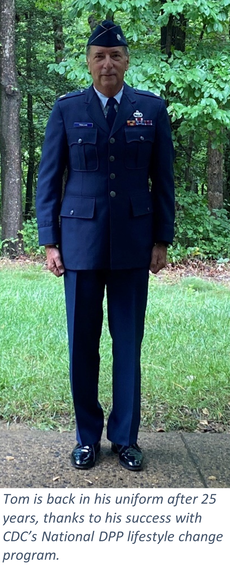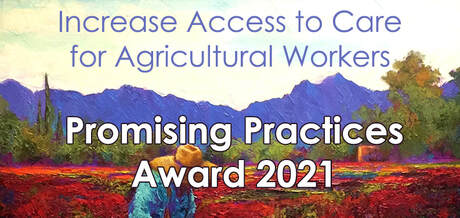2021 Increase Access to Care for Ag Workers Network Promising Practices Award - Sun River Health6/30/2021 Sun River Health (NY) is one of this year’s Promising Practices Award Recipients for our Increase Access to Care for Ag Workers Program. Sun River Health is being recognized for its ancillary service adaptations since the start of the pandemic. Their transportation team added prevention procedures, improved infection control, and allowed for continued transportation services to those patients in most need. Watch how they were able to accomplish this on NCFH’s “COVID-19 Safety Measures for Transportation Teams” video here. From Sun River Health: Sun River Health is a network of over 40 Health Centers who serve more than 245,000 patients throughout the Hudson Valley, New York City, and Long Island in New York State. Our Migrant Health Centers serve approximately 9,000 agricultural (Ag) workers across 6 counties each year, providing medical, dental, behavioral, and enabling healthcare services to all, regardless of insurance or ability to pay. Over the decades that we’ve served farmworkers, we have worked hard to build relationships with farmworker community members, partner organizations, growers, and community leaders to work collaboratively to improve access to the much needed healthcare services our Health Centers offer.
Funding for the IAC Network Promising Practices Award is generated from the annual sales of NCFH commemorative artwork. All proceeds from sales go directly to the IAC Network Promising Practices Award and the NCFH Migrant Health Scholarship fund. Learn more about the IAC Promising Practices Award here.
0 Comments
This is part 1 of our series spotlighting this year's recipients of the Bobbi Ryder Migrant Health Champion Award. These individuals are pursuing educational opportunities that will further their work to ensure access to quality healthcare for Agricultural workers and their families. #AgWorkerAccess Please tell us a little bit more about what you’re studying and how you are going to apply that in your work with Ag Workers? I am pursuing a Master’s degree in Public Health to acquire more knowledge and to strengthen my skills to continue serving our farmworker population to the best of my abilities. I believe that as a Public Health Professional with a higher level of academic preparation, I will be better equipped to contribute to our farmworker community’s health, safety and better quality of life. What led you to become an Ag Worker Access Champion? I strongly identify with the mission and vision of the National Center for Farmworker Health in improving the health of farmworker families by helping them to access quality healthcare. Throughout the years that I spent serving the farmworker population in southern Illinois, I lived and applied the mission and vision of the NCFH. Through the program I lead at Shawnee Health Service, the farm workers we served were able to find the needed support to meet their health care and social needs. We accomplished this by relying on the many resources offered by the NCFH such as trainings, conferences, health education material and updated data and information related to the Migrant and Seasonal population in the U.S. My program finds great support from this wonderful organization. Why do you care about increasing access to care for Ag workers? I believe that farm workers are key for the success of the food industry in the United States. Their skills, hard work and sacrifice are not recognized and valued enough. The low pay for their work, the poor living conditions, the high risk working conditions, the language barrier, low literacy among others, are critical barriers to access health care and social services. The Farmworkers and their families are underserved and vulnerable. They need the support from organizations and professionals like us to have a good quality of life and most of all, to live with dignity. What advice would you give to individuals interested in/considering a career in migrant health? If a person is passionate about empowering, advocating, serving and fighting for the rights of the underserved and vulnerable, I would say working in migrant health is the right field of work for that person. Working in the front lines, directly serving the farm workers is one of the most rewarding experiences. How did you hear about the NCFH scholarship program? I learned about the NCFH Scholarship at one of the Midwest Stream Forum for Agricultural Worker Health that I attended as well as through the NCFH website. About the Bobbi Ryder Migrant Health Scholarship Award: Since 1984, NCFH has awarded more than $220,000 in scholarships to health center staff and board members to assist them in in pursuing their educational goals and to contribute to the development of the Community Health Center workforce. The award is named in honor NCFH’s former CEO and lifelong Migrant Health Champion, Bobbi Ryder.
These scholarship awards ae made possible through funds raised from sales of NCFH commemorative fine art prints and posters.
 June is Men’s Health Month, and we encourage all men to talk to their doctors about their risk for developing type 2 diabetes. When Tom Triscari visited his doctor for a yearly checkup in December 2019, he didn’t know what an A1c level meant. He soon learned it measures your blood sugar levels over the past 3 months, and his were higher than normal, meaning he was at risk for developing type 2 diabetes. Tom says his doctor encouraged him for years to make healthy food choices, but it was hard for him to follow through on the suggestion. He recalls frequent visits to a favorite restaurant with his coworkers where “the portions were crazy, and the bread was wonderful.” Though wonderful, these more processed foods—and others high in sugar, fat, and salt—caused some health problems for Tom, including weight gain, high blood sugar, and prediabetes. At the suggestion of his doctor, he enrolled in the Centers for Disease Control and Prevention’s (CDC) National Diabetes Prevention Program (National DPP) lifestyle change program like the one offered by CDC-led National DPP. The lifestyle change program connects participants—many of whom are men like Tom—to a Lifestyle Coach who helps them learn to eat healthier, exercise more, and manage stress to reduce their risk of developing type 2 diabetes. The goal is to improve participants’ health so they can be there for what matters most in life, like staying strong for work, spending time with family, and enjoying hobbies. As a former military serviceman, Tom always enjoyed exercise, and the program helped him make physical activity a priority and get back into a healthier routine. With the help of his coach, he set goals to get moving and lose weight. “Because of the program, I have exercised for at least 30 minutes for more than 350 consecutive days. It’s crazy!” he says, laughing about how competitive he can get with himself and how he doesn’t want to break his streak. Tom shares that his Lifestyle Coach, Lori, and the positive peer support from other participants really motivated him to reach his personal health and activity goals. “Having a weekly meeting is both supportive and holds you accountable,” he says. "Having to report back not just to Lori but also to your peers—it’s peer pressure in a positive way.” For Tom, the benefits of the program were obvious. He was able to lower his blood sugar levels, lose 35 pounds, exercise more regularly, and consistently add more fruits and vegetables to his diet. Tom was even able to fit back into his military uniform after 25 years, which to him was the most meaningful reward of all. “It’s the complete program that makes the difference,” he says. “It’s not just about exercise. It’s about understanding what’s good to eat and all the stuff that comes up with stress and how to take care of your heart.” What better way to celebrate Men’s Health Month than to learn how the lifestyle change program, such as National Diabetes Prevention Program (National DPP), could support your health! Learn how to get active and eat healthier so you can continue to do what you love without worrying about health problems from prediabetes slowing you down. We hold sessions with trained Lifestyle Coaches to help you reach your goals. In June, we especially celebrate the men in our lives, though we are grateful for them every day. Reducing your risk for type 2 diabetes helps your family and friends enjoy time with you for many years to come. |
The National Center for Farmworker HealthImproving health care access for one of America's most vulnerable populations Archives
July 2024
Categories
All
|




 RSS Feed
RSS Feed